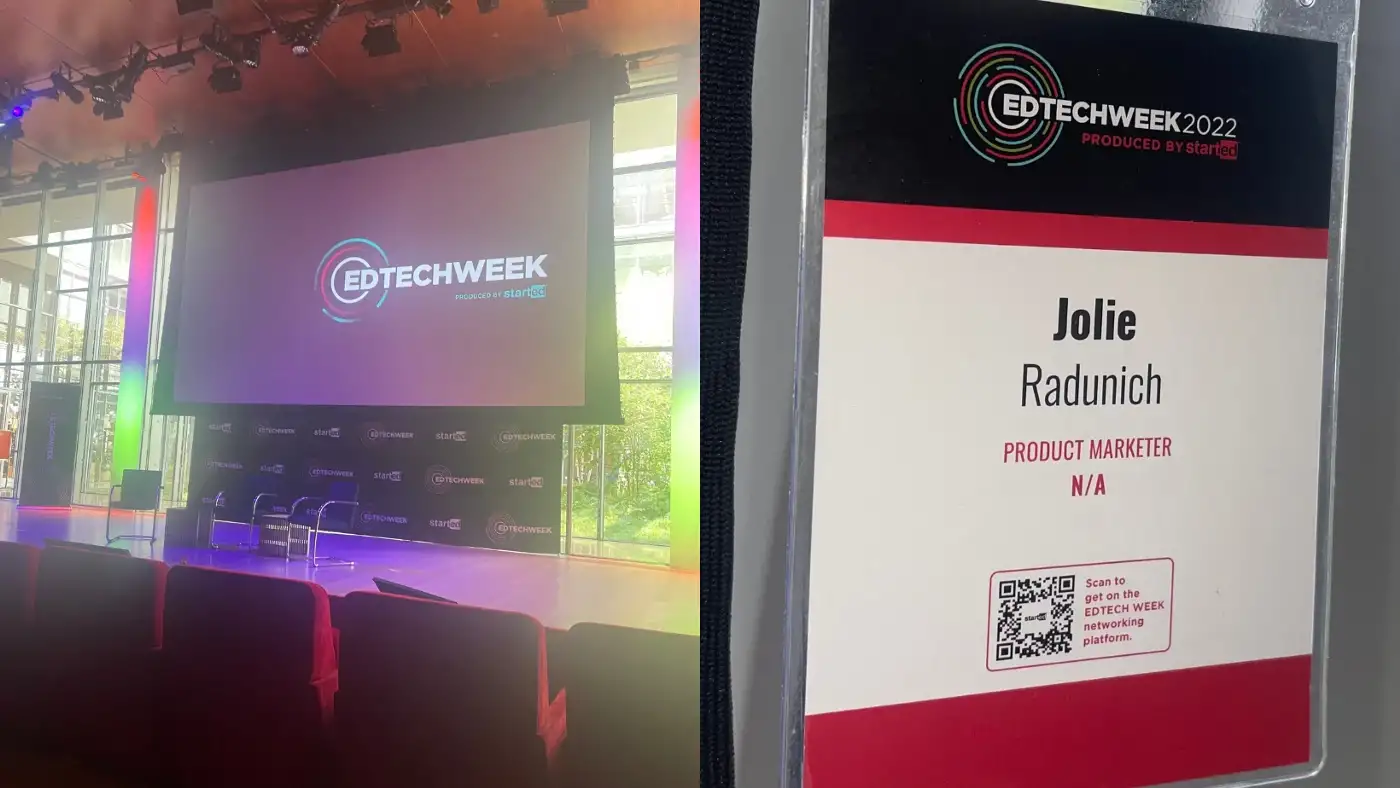
When I register for "education" or "tech" events, I’m used to crossing my fingers.
Why? I'm hoping to hear at least one session that offers mixture of both: edtech. That's why attending EdTechWeek 2022 was a conference unlike any I'd attended before.
The event took place at Midtown Manhattan's Times Center and other hotspots in the city. Every session met at the corner of education and technology.
My takeaways from EdTechWeek 2022 support the need for more spaces dedicated to discussing the groundbreaking, essential, and at times controversial work that goes on in the industry.
“Going to school for school's sake is no longer enough”
In a Q&A with NYC Schools Chancellor David Banks, he called the competition young people will face in their future careers so steep, that “we need everyone in the game.”
Here are a few more straightforward takes he gave on the need to innovate in education:
We need to connect math and science to the real world.
Balanced literacy hasn’t worked, we need to return to phonics.
School is boring for many of our students.
There’s a difference between schooling and educating.
I see opportunities for edtech to play many roles with the issues raised by Chancellor Banks:
We need to connect math and science to the real world. --> Use video software or VR to create career explorations for students.
Balanced literacy hasn’t worked, we need to return to phonics. --> Creating literacy supports that support the stance YOU take in the reading wars.
School is boring for many of our students. --> Lean on 20% projects, career exploration software, and multiple learning styles to engage.
There’s a difference between schooling and educating. --> Encouraging students that learning is a lifelong process that doesn't end when the bell does.
The idea of school being boring for many students isn't a new revelation. I've heard bits and pieces of each of these arguments in casual conversations, television programming, and in college. Having a single forum to work through so many different issues cannot be undervalued.
Here's how edtech can support you from Pre-K to gray
After hearing all the conference presentations, I compiled my notes and made a summary of edtech goals at each stage of life.
K-12
Get students reading by 3rd grade.
Expose kids to the power of possibility.
Give kids true choice over what they want to learn (something ABCD options can't do).
Higher ed
Efforts geared toward this group of learners are narrower. Edtech is largely centered around helping young adults figure out what wakes them up at 2 am—and how to turn THAT into a career.
Adult ed
The hyper-focus on skill development used with this age group feels like a code phrase for adult education. Alternative pathways to returning to traditional school range from earning micro-credentials to certifications.
Edtech is increasingly supporting people of all ages from various life experiences.
Edtech is supported by the public and private sectors
Government
When national ed tech policy began in the 90s, the Office of Ed Tech was born.
The U.S. Department of Education Office of Educational Technology (OET) develops national educational technology policy and establishes the vision for how technology can be used to transform teaching and learning establishes the vision for how technology can be used to transform teaching and learning...
The critical mission statement is met with a snail’s pace influence on national policy. For now, the OET hosts meetings with ed tech developers to exchange ideas; conversations that should always be welcomed. However, hearing about the quick growth associated with startups definitely creates more hype around educational outcomes improving that much faster.
Startups
RideAlongNow gives families an alternative to sending their children to school on public buses. The comforting environment primes students for their day at school, while parents can follow their child’s ride and feel relieved knowing where they are. One of the startup’s greatest challenges now feels like a nice problem to have: keeping up with customer demand.
Having the opportunity to compare how edtech is addressed in the public and private sectors left me wondering about the potential for future partnerships beyond meaningful conversations.
Looking ahead: Edtech conversations continue to expand
Edtech's existence hasn't been without controversy. Questions over whether products work and teacher discouragement are a few of many reasons that've created pushback against using it in the classroom.
What's certain is that if we’re going to make effective products with transformational results, we need more forums to openly talk about what’s going on.